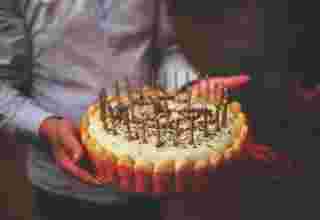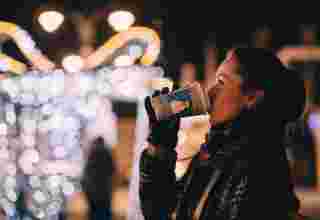Modern families are ditching the traditional 12 days of Christmas – and celebrating it for more than a month, according to new research.
Almost four in 10 households start celebrating Christmas on 1st December right through until 1st January – a total of 32 days.
A fifth of homes put up the tree and decorations in November and over a quarter of families think giving a gift every day of December embodies ‘the true spirit of Christmas’.
Commissioned by parenting site ChannelMum.com, the research of 1,238 mothers also found 16 per cent save all year just for the holiday season and 28 per cent think Christmas is too commercialised.
Siobhan Freegard, founder of ChannelMum.com said: “The 12 Days of Christmas has almost trebled to the 32 Days of Christmas – and while it’s fantastic to see families having so much fun, it can put a huge strain on family festive finances.
“It’s certainly better to give than receive but that doesn’t mean you need to lavish your children with gifts every single day in December.
“Think back to your own childhood and the excitement of waiting for Christmas Day, and sometime it’s clear less really can be more.”
Only eight per cent of families stick to celebrating festivities for 12 days celebration – 14 per cent said their celebrations last 14 days on average.
Almost seven in 10 parents now give gifts to their kids on days other than Christmas Day.
Of those polled, 61 per cent give their children presents on Christmas Eve, while three per cent do the same on Boxing Day.
A further three per cent of children receive bonus gifts on New Year’s Eve or New Year’s Day, while one in 20 are given a present on 1st December.
The first week in December is the most popular time to decorate the home with 60 per cent of families decking the halls right at the start of the month.
A quarter of mums start Christmas shopping in October and 24 per cent begin it in November – just one in 10 leave it until December, while 12 per cent begin buying gifts as early as January.
The popularity of advent calendars appears to have increased with the average family’s spend on advent calendars going from £10.16 last year to £17.49 this year- a 58 per cent rise.
Of those surveyed, 95 per cent have the advent calendars – a third get one for each child, for themselves and for their partner too.
One in ten mothers purchase more than one advent calendar for each child and seven per cent get one for the whole family.
The most popular advent calendars contain chocolate calendars – with 89 per cent of households getting at least one.
And 14 per cent of mums said eating the advent calendar chocolate at breakfast is now a festive tradition in their family.
A fifth of mothers buy their children toy calendars such as Playmobil and Lego, which typically retail at around £20 each.
A further ten per cent of respondents buy themselves or their partner beauty advent calendars which contain a cosmetic product for each day and can cost up to £250.
While five per cent of mums have bought alcoholic calendars containing tipples such as gin and beer.
However 18 per cent of families now make their own refillable calendars which include personalised gifts.
Of those polled, 13 per cent are opting for ‘reverse advent calendars’ where they fill an empty box with grocery items each day in December before donating it to a foodbank on Christmas Eve.
Seven in 10 families who get reverse calendars said it’s a way to help other families – and teach their children how lucky they are.
While eight per cent of households admit having calendars which benefit foodbanks makes them feel better about spending lavishly on their own family.
And a further six per cent of respondents who go for the charitable calendars have needed to use foodbanks themselves in the past and want to give back now.
Siobhan Freegard said: “The trend for reverse advent calendars captures the true spirit of Christmas personally, and we’d encourage more families to do it if they can afford it.”
To see how you can create your own reverse advent calendar : watch the video above.



















